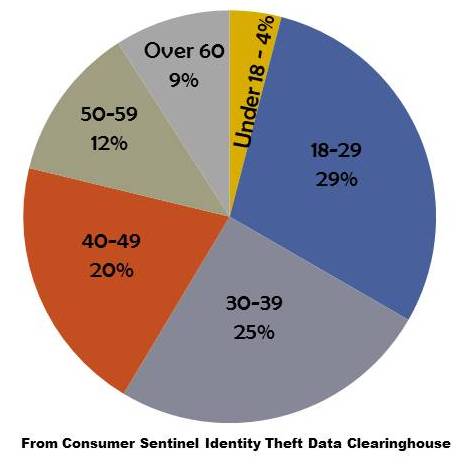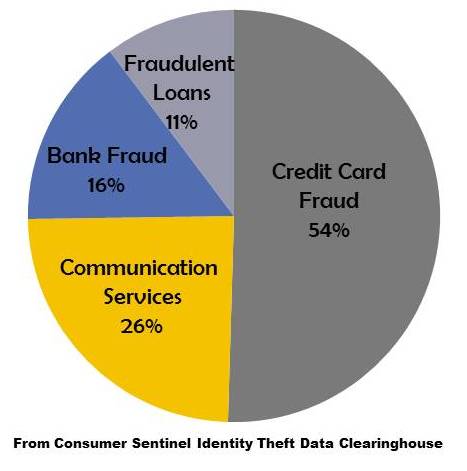True or False-How Much Do You Really Know About Identity Theft?
1. The elderly are more likely to fall victim to identity theft.
False. People between the ages of 18-29 are more likely to experience identity theft. 9% of identity theft victims are over the age 60 while 29% are between the ages of 18-29, with 30-39 coming in a close second with 25%. The elderly are more likely to be victims of financial exploitation than have their identities compromised.
2. The most common type of identity theft is credit card fraud.
True. The most common type of identity theft is credit card fraud (54%). Due to the ease of applying for credit over the internet can be a factor as to why this type of identity theft occurs more often.
3. Drug trafficking has officially been replaced by identity theft as the number one crime.
True. Nearly 10 million people are victims of identity theft a year.
4. Identity theft occurs more frequently today because of technological methods.
False. Most thieves still rely on traditional (non-technological) methods of stealing people’s identities (dumpster diving for thrown away credit card applications, break-ins that result in personal information being taken, and stolen wallets).
5. Many victims claim their identities were being used fraudulently for four years before they became aware.
True. 18% of victims claim their identities were being used fraudulently for the previous four years.
6. Once an individual becomes aware they are a victim of identity theft, modern policies and procedures have made it easier to be “made whole again”.
False. Victims spend an average of 330 hours repairing their credit after having their identities stolen. Law enforcement is reluctant to investigate, banks many times dismiss the seriousness and often, the perpetrator is never caught to pay back the monetary damage that has been caused.
7. Washington State is reported to have one of the highest victimization rates of identity theft per capita.
True. New York, California, Nevada, Arizona, Texas and Washington State have the most cases of identity theft per capita. Makes you ask why?
8. Minorities are more often victims of identity theft.
False. White, Non-Hispanic individuals are more likely to fall victim to identity theft. 6,361,400 Whites reported identity theft in 2010 compared to 814,500 African Americans. Do you think African Americans experience identity theft less or just don’t report it to Law Enforcement as often?
9. Identity theft occurs in urban areas at a higher rate.
False. Identity theft occurs more often in suburban areas. 4,718,500 individuals in suburban areas were victimized in 2010 compared to 3,083,100 in urban areas.
10. The emotional impact of identity theft is parallel to those victimized by violent crime.
TRUE TRUE TRUE!!! Victims often report that they suffer trauma similar to that of violent crime; feeling violated, confused about how to get help, and no longer in control of their lives. Added to this emotional trauma is the burden of having to prove one’s innocence.
Information for Numbers 1-7 is from Consumer Sentinel Identity Theft Data Clearinghouse, Number 8 and 9 from the Sourcebook of Criminal Justice Statistics Online and Number 10 from the US Department of Justice.
If you or someone you care about has had their personal information compromised, contact Victim Support Services at 1-800-346-7555 and ask how an advocate can help you.


